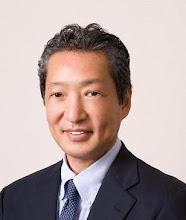Following essay was posted to monthly magazine "Staff Adviser " home page.
http://www.staffad.com/bilingual/shinbori/shinbori01_en.html
An Unexpected Side to the American Businessperson
-- Businesslike and self-assertion are myths. Switching between one's real intentions and their public face --
●Prejudice against American businesspeople by Japanese people
What are the differences between American businesspeople and Japanese businesspeople? I asked my friends this question and this is how they replied.
1) The American businessperson is businesslike. They clearly distinguish between business and their personal lives.
2) The American businessperson is self-assertive. They are always pushing their opinion.
3) The American businessperson doesn’t switch between their real intentions and their public face.
Most Japanese seem to have this kind of prejudice. However you can tell that it is a stereotypical viewpoint when working with executive level American businesspeople. They are not always businesslike. They actively listen to others. The switching between one’s real intentions and the face one puts on in public is not unique to the Japanese people. American businesspeople also switch between the two sometimes.
●Building communication using one’s own private time
About 20 years ago, I was in charge of PC multimedia projects. I often visited PC hardware and software vendors in the U.S. for the purpose of establishing world standards for multimedia formats. Each vendor had their own intentions, and aspired to include their own technology and patents into the standards.
They had a high motivation and eagerness for their work and didn’t compromise easily. However I encountered something unexpected. After a meeting with U.S. vendors during the day, I left saying, “Well, let’s pick up where we left off tomorrow...” At this point I was often invited “Let’s have a drink together,” or “I would like to invite you for dinner at my house.”
When the meeting would be held after the weekend, I was invited to go golfing or to go on a cruise over the weekend.
They spend their important private time over the weekend or at night for their business clients or partners. Nevertheless, they don’t discuss work at night or on the weekend.
What I learned was: one of most important factors which they use to succeed in business is the human relationship. Building a good human relationship leads to greater business success, they think.
Therefore they are always thinking about how they can build better communication by using not only their time at work but also their private time. They are always thinking of ways to improve communication with fellow employees within the company and their division, as well as with people outside the company.
In the case of company executives, the boundary between one’s business and private lives starts to break down. The person who sits next to you on the plane may be the same person who conducts an M&A business meeting with you the next day. The human relationships which higher ranked executives have are not solely businesslike, but rather mix of one’s private and public face in a good way.
●Mr. Bill Gates is good at praising
It is a common saying that American businesspeople are very self-assertive. Of course, they talk a lot. However, they don’t always talk. The way American businesspeople communicate is by talking a lot, listening actively and giving lots of praise. They make an extra effort to praise others as much as they can.
When Mr. Bill Gates, CEO of Microsoft, was in his early thirties, there was a technical meeting with him in Tokyo. It was a meeting in which the Japanese engineers of the company I was working at participated. During the meeting, Mr. Gates kept saying, “It's a great idea! Super!” over and over. In any case, he kept praising the engineers and our ideas by saying “Super!”. Nobody felt uncomfortable by the praise heaped on us by Mr. Gates.
However, he began to give us orders by saying “Maybe we can improve it further by doing this…” Although excellent executives are sometimes self-assertive, they also listen actively and praise others in a clever manner.
●Switching between one’s real intentions and public face is commonplace throughout the world
It was thought that switching between one’s real intentions and their public face is a Japanese person’s specialty. But this is not true. Even American businesspeople switch between the two on occasion. Company executives often invite their subordinates or associates to a Christmas party at their home. The main aim of this kind of party is to promote mutual communication among work colleagues.
When the host is chatting with a guest, even if the guest’s opinion is different from that of the host, the host will never say “I don’t think so!!” in such a social occasion. Usually the host listens patiently to the guest while he talks and he doesn’t give his true feelings away. It is the common rule that the subordinate doesn’t say his real intentions when interacting with his boss in social occasions, even under the influence of alcohol.
We Japanese don’t say our honest opinions to our boss in a free and easy party environment. Likewise American businesspeople with good common sense switch between their real intentions and their public face where appropriate.
登録:
コメントの投稿 (Atom)


0 件のコメント:
コメントを投稿